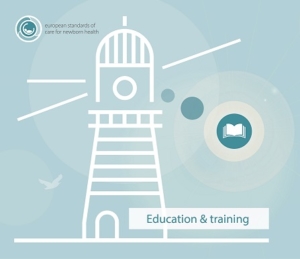

A guest article by Gloria McAnulty, PhD, Treasurer and Member of the NIDCAP Federation International (NFI) Board of Directors, Massachusetts, USA &
Heidelise Als, PhD, Originator of NIDCAP, Founder of the NFI, Massachusetts, USA and Deborah Buehler, PhD, President and Member of the NFI Board of Directors, California, USA
The Newborn Individualized Developmental Care and Assessment Program (NIDCAP) is the earliest, most comprehensive, and research evidence-based system for assessing and supporting the neurodevelopment of hospitalized prematurely born or otherwise medically at high-risk newborns and young infants.
The NIDCAP approach focusses on each infant’s unique behavioral communications and adapts care and the environment to support the infant’s own behavioral goals and strengths. NIDCAP gives the infant a voice and understands the infant as an active participant and collaborator together with the family, in the care the infant receives.
NIDCAP’s goal is to foster the infant’s strengths and decrease the vulnerabilities and stresses inherent in any intensive care setting. Over 30 years of competitively funded, peer-reviewed scientific research document that NIDCAP supports the infant’s brain development and neurobehavioral functioning into school age.
With the publication of the early research papers, interest in adopting the NIDCAP model grew worldwide. NIDCAP’s originator, Dr. Heidelise Als, recognized the importance of ensuring the fidelity to the model and developed an education and formal training framework in order to certify other professionals and trainers in the approach. She emphasized the relationship-based and dynamic process-orientation of the approach and assured that the model would grow as new insights and experience were gained and medical care practices evolved. In 2001, by consensus, the practicing NIDCAP Professionals and Trainers arrived at the decision to found the NIDCAP Federation International (NFI) in order to establish the overarching Vision of “a global society in which all hospitalized newborns and their families receive care in the evidence-based NIDCAP model.” Paramount was the understanding that NIDCAP must address all aspects of a nursery system as the guiding standard of care.
The NFI upholds NIDCAP practice as a sea change and paradigm shift, a profound and notable modification in the care system’s self-understanding and definition. NIDCAP involves a system-wide change in the philosophy and implementation of care for the infant, the family and for the caregiving staff and professionals.
In response to this vision, the NFI developed and launched in 2011 the NIDCAP Nursery Program (NNP). It is the true definition of a Lighthouse Project, namely the beacon holding the practice on course.

The NNP provides a comprehensive resource for a nursery system’s self-evaluation, its strengths, goals and next steps for integration of NIDCAP into all aspects of functioning. Overcoming the challenges inherent in system change is integral to the very nature of change. Beginning with self-assessment, the cross-disciplinary care teams come together and identify existing strengths. The teams collaboratively establish priorities for the next steps necessary to successfully incorporate the philosophy and practice of NIDCAP in their setting. In doing so, they identify the barriers to their system’s change, foster a collaborative peer-leadership structure, jointly make a plan, delegate actions, define timelines, and hold each other accountable while working supportively for the common goal. System-wide change is continuous and occurs in active, supportive and reflective collaboration, a process by its very nature challenging.
Consistently well-integrated NIDCAP care is the primary goal of all NIDCAP work. The NNP provides a strategy to accomplish integration of NIDCAP in its fullest expression. It provides the organization and structure for the many conceptual efforts of NIDCAP education and training. This effort has yielded documents such as the nursery self-assessment manual and the nursery certification process and program, as well as a program for self-reflection and site reflective consultation and guidance. The Nursery Assessment Manual and the associated materials are the tools to plan and document change. They provide support for hospital administrators, as well as nursery professionals and families to identify and address the next steps collaboratively. Realization of this approach is the best indicator of system change.
The achievements are reflected in the numbers: Globally there are currently more than 3,000 NFI-certified NIDCAP Professionals; twenty-five NIDCAP Training Centers (Argentina-1, Australia-1, Canada-1, Europe-14, Israel-1, Japan-1, USA-6) and eight NFI-Certified NIDCAP Nurseries: (Denmark-1, France-2, Israel-1, Sweden-1, USA-3), with others at various stages of development. The Model of the NIDCAP Nursery (shown above) depicts the process of moving from a traditional, task and schedule-oriented nursery system to a relationship-based infant and family integrated NIDCAP nursery.

Special thanks to
Gloria McAnulty, PhD, Treasurer and Member of the NIDCAP Federation International (NFI) Board of Directors, Massachusetts, USA
Heidelise Als, PhD, Originator of NIDCAP, Founder of the NFI, Massachusetts, USA and
Deborah Buehler, PhD, President and Member of the NFI Board of Directors, California, USA
for this informative feature.
You are currently viewing a placeholder content from Facebook. To access the actual content, click the button below. Please note that doing so will share data with third-party providers.
More InformationYou are currently viewing a placeholder content from Instagram. To access the actual content, click the button below. Please note that doing so will share data with third-party providers.
More InformationYou are currently viewing a placeholder content from X. To access the actual content, click the button below. Please note that doing so will share data with third-party providers.
More Information